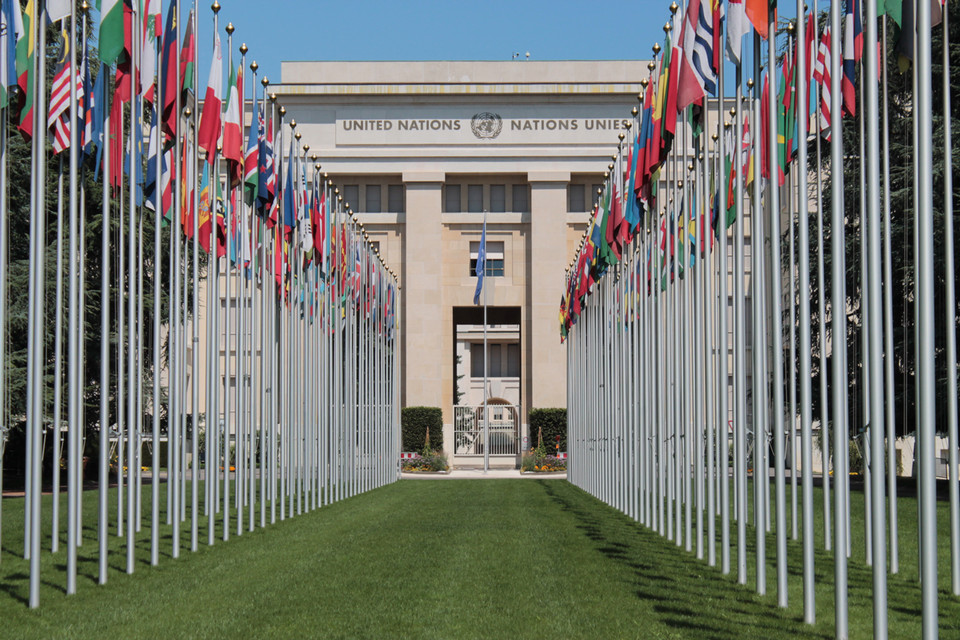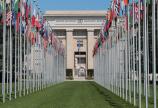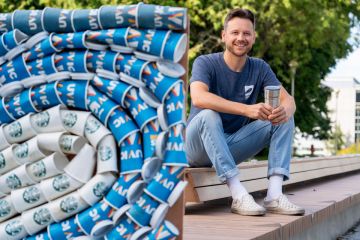Experts on UN Summit of the Future
Social Sciences, Human and Social Development, Humanities, Engineering

The following University of Victoria experts are available to media to discuss United Nations Sustainable Development Goals as the international community gathers for the UN Summit of the Future.
Adebisi Alade (History) is an expert in African History with a particular interest in the social history of health and medicine. His first book project analyzes how Africans negotiated colonial health programs, making original contributions to studies on colonial developmentalism and showing how subaltern politics shaped public health development in Africa. As a United Nations University (Institute for Water, Environment and Health) Water Without Borders scholar with expertise in International Policy Development, he can speak to SDG 3: good health and well-being. (Contact: aladea@uvic.ca).
Caetano Dorea (Civil Engineering) is an expert in water and sanitation for low-resource contexts. He is the Director of WASH Canada training program. WASH Canada leverages water and sanitation expertise in eight Canadian universities to train the next generation of water leaders working on SDG 6: clean water and sanitation. At UVic, he leads the Public Health and Environmental Engineering (PH2E) Lab which is Canada’s first research group solely dedicated to addressing water and sanitation challenges faced by vulnerable communities in low-resource contexts. (Contact: caetanodorea@uvic.ca)
Jason Colby (History) is a marine environmental historian with expertise in international relations and environmental culture and policy, particularly with respect to the interaction between humans and marine mammals. He is the author of Orca: How We Came to Know and Love the Ocean’s Greatest Predator, which examines the transformation of human relations with killer whales (Orcinus orca) from the 1960s to the present, and its impact on regional and global environmental values and policy. He is currently lead researcher on the Devilfish: The History and Future of Grey Whales and People, funded by the Social Sciences and Humanities Research Council (SSHRC). As a scholar of humans’ historical interactions with whales, especially on the Pacific Coast, he can speak on SDG 14: life below water. (Contact: jcolby@uvic.ca)
Laura Parisi (Gender Studies) is a political scientist trained in feminist international relations with expertise in international human rights, development and global political economy. She is currently a gender advisor to and collaborator with World Fisheries Trust and Royal Roads University on a Global Affairs Canada funded project that focuses on women’s empowerment in sustainable small-scale pond aquaculture in Bolivia. Having served as a gender, human rights and development advisor/consultant to the federal government and a variety of NGOs/CSOs in the sector, she can speak to SDG 5: gender equality. (Contact: lparisi@uvic.ca)
Katya Rhodes (Public Administration, Institute for Integrated Energy Systems) is a climate policy expert investigating the issues of effective and acceptable pathways to reduce climate change. With respect to the UN Summit of the Future, she can discuss climate-related SDGs. (Contact: krhodes@uvic.ca)
Sowmya Somanath (Computer Science) is an expert in human-computer interaction. She leads the Creative Experiences Lab and co-directs the VIXI research group at UVic. She can discuss the importance of designing technologies from a human and community-centered perspective, to ensure that technologies better align with individual and societal needs and goals relating to SDG 3: good health and well-being. (Contact: sowmyasomanath@uvic.ca)
Audrey Yap (Philosophy) researches and teaches feminist philosophy, feminist and social philosophy, feminist epistemology and prison justice. She is the co-author with Barrett Emerick of Not Giving Up on People: A Feminist Case for Prison Abolition. She can speak to SDG 5: gender equality and SDG 10: reduced inequalities. (Contact: ayap@uvic.ca)
Gerald Singh (Environmental Studies) examines the intersections between environmental management, development and social equity. His research is primarily situated in the science-policy interface, and works to understand uncertainty and risk in policy and actions towards sustainable development goals and unequal effects on people. He works across ocean disciplines, from established areas such as fisheries to emerging subjects like coastal energy transitions. (Contact: singhg@uvic.ca)
Natalie Ban (Environmental Studies) is a marine conservation scientist. Her research focuses on coastal and marine systems on topics such as marine protected areas, coastal governance and climate change. Much of her research is done in partnership with First Nations and others. With guidance of partners, her approach uplifts Indigenous knowledge holders and weaves traditional knowledge into biodiversity conservation. (Contact: nban@uvic.ca)
Photos
Media contacts
Simone Blais (University Communications and Marketing) at uvicnews@uvic.ca
In this story
Keywords: science, climate, clean energy, sustainability, innovation, policy, research, politics, education, government, community, international, administrative, People Place Planet, Change and Transformation, Sustainable Partnerships, sdgs
People: Adebisi Alade, Caetano Dorea, Jason Colby, Laura Parisi, Katya Rhodes, Sowmya Somanath, Audrey Yap





